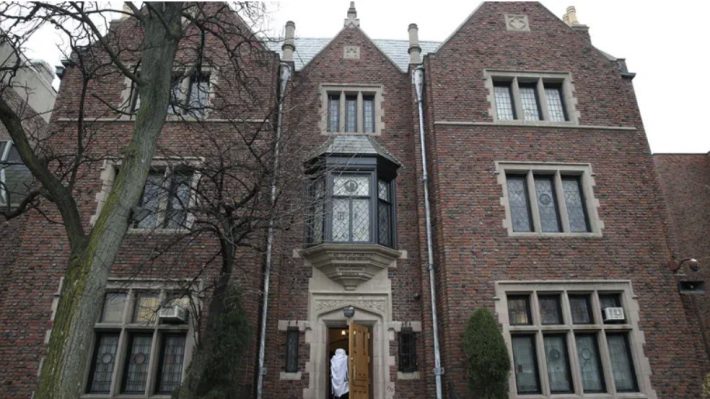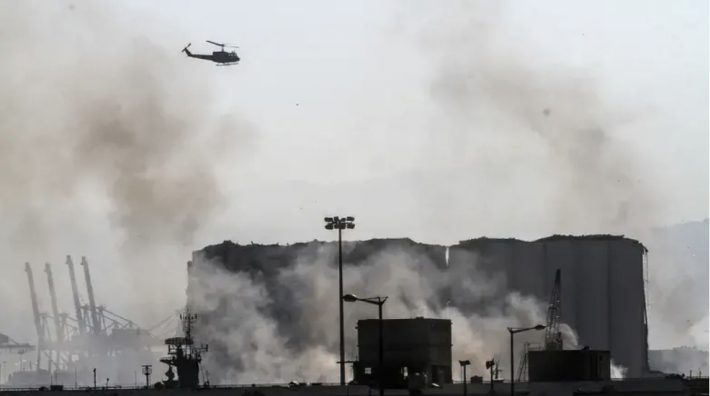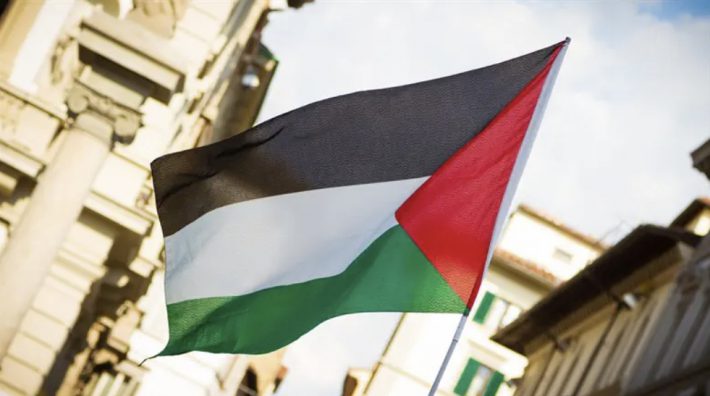US president reminded PM ‘those people are suffering’ in enclave: ‘There’s a very big need for food, medicine. We’re taking care of it’; says Netanyahu ‘felt well about’ request
US President Donald Trump said on Friday that he told Prime Minister Benjamin Netanyahu that “we’ve got to be good to Gaza” as he pushed the Israeli premier to get more food and medicine into the Strip.
Speaking to reporters aboard Air Force One as he travelled for Pope Francis’s funeral, Trump was asked whether concerns about humanitarian aid for Gaza came up in his phone call with Netanyahu earlier this week.
“Gaza came up and I said, ‘We’ve got to be good to Gaza,’” Trump said.
“Those people are suffering. We’ve got to be good to Gaza. We’re going to take care of them,” he added.
“There’s a very big need for… food and medicine. We’re taking care of it,” Trump said.
Pressed on whether he’s pushing Israel to allow aid into Gaza, Trump responded. “We are,” adding that he wants “to get food and medicine into Gaza.”
Asked how Netanyahu responded to the request, Trump said, “Well. He felt well about it.”
It was the first time Trump had publicly weighed in on the issue of humanitarian aid for Gaza, which was a repeated point of conflict between Netanyahu and the Biden administration.
The revelation of the discussion between Netanyahu and Trump came shortly after the World Food Programme said it had run out of food stocks in Gaza due to the sustained closure of crossings into the enclave.
“No humanitarian or commercial supplies have entered Gaza for more than seven weeks as all main border crossing points remain closed. This is the longest closure the Gaza Strip has ever faced, exacerbating already fragile markets and food systems,” the WFP said in a statement to journalists.
WFP, one of the main providers of food assistance in the Palestinian territory, said it had “delivered its last remaining food stocks to hot meals kitchens in the Gaza Strip” on Friday.
It said, “These kitchens are expected to fully run out of food in the coming days.”
Israel began barring all aid from entering Gaza after the first phase of a ceasefire in the Strip concluded on March 1. Since then, there have been mounting accusations, denied by Israel, of a food and medicine shortage in Gaza.
On Wednesday, Germany, France and Britain called for an end to the “intolerable” blockade and warned of “an acute risk of starvation, epidemic disease and death.”
Israel rejected the statement as “ethically outrageous.”
During Tuesday’s security cabinet meeting, far-right Finance Minister Bezalel Smotrich reportedly verbally sparred with IDF Chief of Staff Lt. Gen. Eyal Zamir over the potential distribution of humanitarian aid in Gaza.
According to Hebrew-language media reports, the spat erupted after Defense Minister Israel Katz informed the cabinet that Israel would have no choice but to resume aid deliveries to the war-torn Gaza Strip within the next week or two, but must ensure that it does not reach Hamas.
Zamir, in response, was said to have told Katz that the military would not be responsible for distributing the aid, prompting Smotrich to retort that “the army does not choose its missions” and that the political echelon expected the IDF to be on top of aid distribution to ensure that none of the goods falls into Hamas’s hands.
“We have specified to you that you need to prepare for this. We will decide the goal and you will decide how to complete it,” said the finance minister. “If you are not capable, we will bring in someone capable. If you do not know how to do it, we will find someone who does.”
Earlier this month, the Ynet news site reported that Israel will begin to allow some humanitarian aid into the Gaza Strip to avoid international law violations and future legal problems for commanders who take part in the military operation.
“There is no starvation or no beginning of diseases in Gaza, but we are about 40-50 days away from a situation where the food warehouses will be emptied. Last week, there were incidents when Gazans broke into warehouses with flour we brought in and transferred them to Hamas control,” unnamed security sources were quoted as saying in the April 7 report.
The report said that the IDF “made it clear to the political leadership” that at some point there will be no choice but to resume the supply of food, fuel and medicine to Gaza.
The war in Gaza was sparked by the October 7, 2023, Hamas invasion and massacre in southern Israel, in which some 1,200 people were killed, and 251 were seized as hostages.
Fifty-nine hostages remain in captivity, of whom 24 are believed to be alive, according to Israeli intelligence assessments.
The Hamas-run Gaza health ministry says more than 51,000 people in the Strip have been killed or are presumed dead in the fighting so far, though the toll cannot be verified and does not differentiate between combatants and civilians. Israel says it has killed some 20,000 combatants in battle as of January and another 1,600 terrorists inside Israel on October 7.





